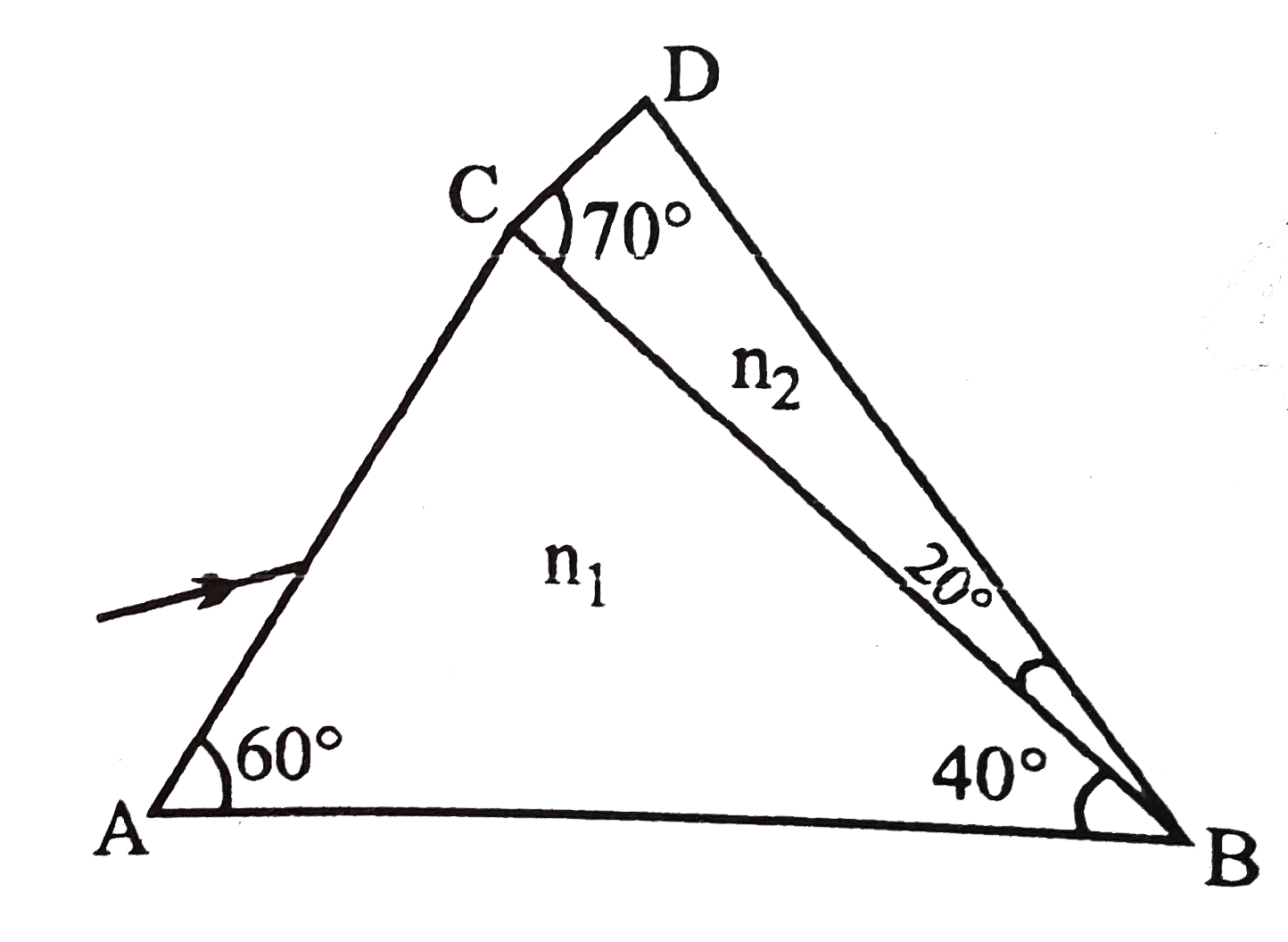The gravitational field due to a mass distribution is given by E=Kx3 in X-direction. Taking the gravitational potential to be zero at infinity, find its value at a distance x.Solution in Gujrati
Kx
K2x
Kx2
K2x2
The correct Answer is:D
∫dV=−−∫Ig.dx,∫0vdV=−∫∞rkx3dx
0−V=[−12x2]∞r⇒V=+k2r2⇒V=k2x2
Topper's Solved these Questions
- GRAVITATIONBOOK - ALLEN CHAPTER - GRAVITATIONEXERCISE - Exercise 2 (Brain Teasers)
27 Videos
- GRAVITATIONBOOK - ALLEN CHAPTER - GRAVITATIONEXERCISE - Exercise 3 (Miscellaneous Type Questions)
20 Videos
- GRAVITATIONBOOK - ALLEN CHAPTER - GRAVITATIONEXERCISE - EXERCISE 4
9 Videos
- GEOMETRICAL OPTICSBOOK - ALLEN CHAPTER - GEOMETRICAL OPTICSEXERCISE - subjective
14 Videos
- KINEMATICS-2DBOOK - ALLEN CHAPTER - KINEMATICS-2DEXERCISE - Exercise (O-2)
47 Videos
Similar Questions
One projectile after deviating from its path starts moving round the earth in a circular path of radius equal to nine times the radius of earth R. Its time period is
View SolutionStatement-1: Two satellites A & B are in the same orbit around the earth B being behind A. B cannot overtake A by increasing its speed.
Statement-2: it will then go into a different orbit.
View SolutionAssertion : The difference in the value of acceleration due to gravity at pole and equator is proportional to square of angular velocity of earth.
Reason : the value of acceleration due to gravity is minimum at the equator and maximum at the pole.
View SolutionA prism of refractive index n1 & another prism of reactive index n2 are stuck together without a gap as shown in the figure.The angle of the prisms are as shown. n1&n2depend onλ,the wavelength of light according to n1=1.20+10.8×104λ2&n2=1.45+1.80×104λ2 where λ is in nm.

(i)Calculate the wavelength λ0for which rays incident at any angle on the interfaceBCpass through without bending at that interface.
(ii) for light of wavelength λ0,find the angle of incidencei on faceACsuch that the deviation produced by the combination of prism is minimum.
View SolutionA particle is moving in xy-plane .At certain instant the components of its velocity and acceleration are as follows ux=3m/s,uy=4m/s,ax=2m/s2anday=1m/s2. The rate of change of speed at this moment is
View SolutionThe gravitational field due to a mass distribution is given by E=−K/x3 in x-direction. Taking the gravitational potential to be zero at infinity, find its value at a distance x.
View SolutionThe gravitational field due to a mass distribution is E=K/x3 in the x - direction. ( K is a constant). Taking the gravitational potential to be zero at infinity, its value at a distance x is
View SolutionThe gravitational field due to a mass distribution is E=(A)/(x^(2)) in x-direction. Here, A is a constant, Taking the gravitational potential to be zero at infinity, potential at x is
View SolutionA gravitational field due to a mass distribution is E−K/r3 in the X-direction. (K is a constant). Taking the gravitational potential to be zero at infinity, its value at a distance x is :
View SolutionThe gravitational field due to a mass distribution is E=K/x3 in the x - direction. ( K is a constant). Taking the gravitational potential to be zero at infinity, its value at a distance x is
View SolutionThe gravitational field due to a mass distribution is E=Ax2 in x-direction. Here A is a constant. Taking x the gravitational potential to be zero at infinity, potential at x is
View SolutionThe gravitational field due to a mass distribution is given by E = K//x^3 in x-direction. Taking the gravitational potential to be zero at infinity, its value at a distance x.
View SolutionThe gravitational field due to a mass distribution is E=Ax2 in x-direction. Here A is a constant. Taking the gravitational potential to be zero at infinity, potential at x is
View SolutionThe gravitational field due to a mass distribution is given by E=K/x3 in x-direction. Taking the gravitatioanl potential to be zero at infinity, its value at a distance x.
View SolutionThe gravitational field due to a mass distribution is E=Ax2 in x-direction. Here A is a constant. Taking the gravitational potential to be zero at infinity, potential at x is
View SolutionThe gravitational field due to a mass distribution is given by E= K"/"x^(3) in x-direction. Taking the gravitatioanl potential to be zero at infinity, its value at a distance x.
View Solution
